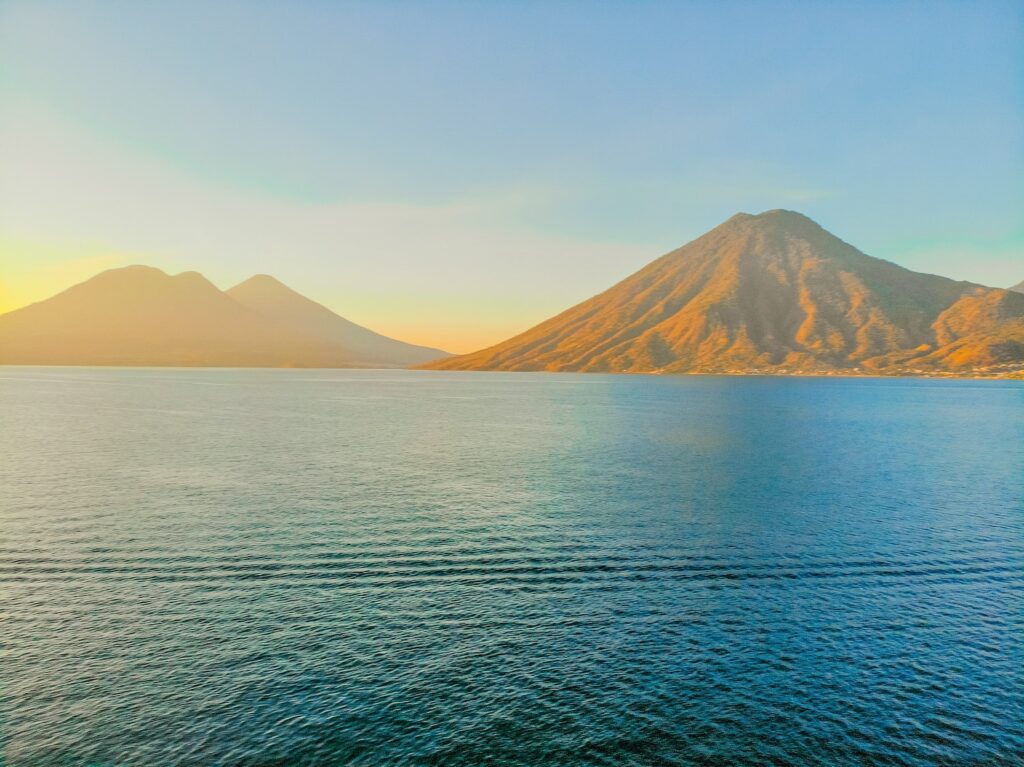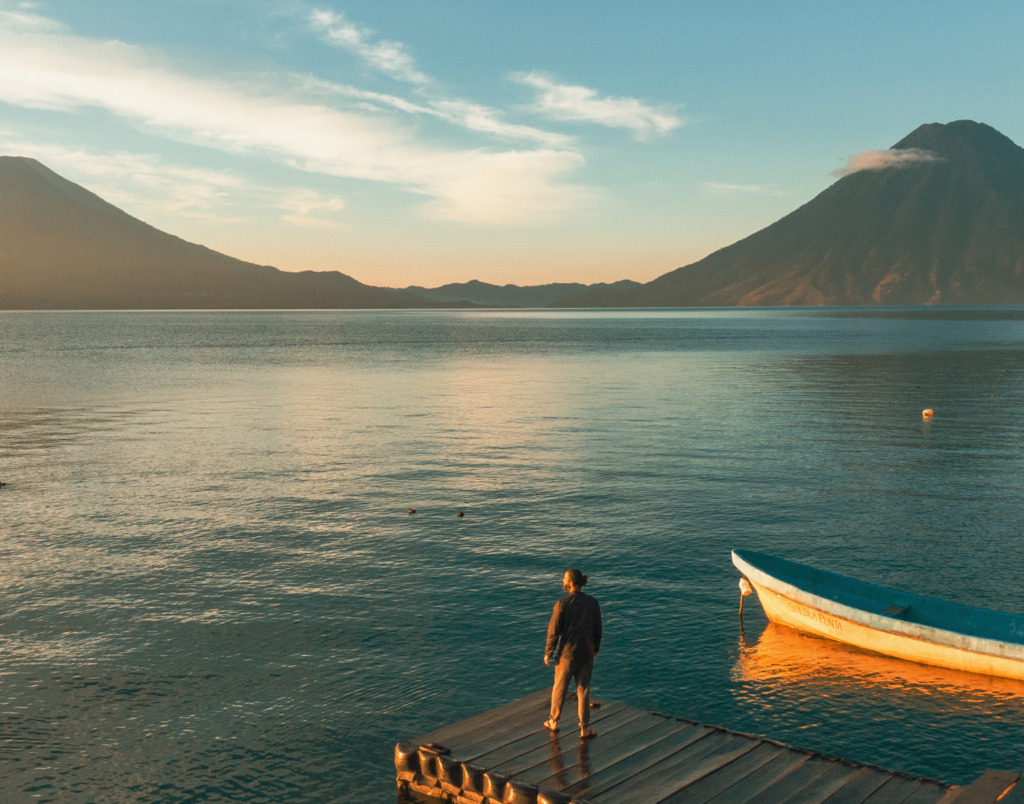Guatemala, the land of eternal spring, is truly heaven on earth. Rolling hills, majestic volcanoes, a rich culture, and a fabulous climate make this stunning country a must-see for over a million tourists every year.
If you’re getting ready for your trip to this tropical destination – it’s essential to come prepared. Guatemala, just like every other country in the world, has a variety of illnesses that can be caught by locals and backpackers alike. So before you visit, take some time to understand these common sicknesses, how to prevent them, and the best tactics for recovery so you can enjoy the trip of a lifetime.

What Types of Sicknesses Can You Get While Traveling Guatemala?
Please be aware that while these are the most common illnesses we see in travelers, it is not a complete list. Check the World Health Organization or your country’s embassy and health websites for a more detailed breakdown.
1. Traveler’s Diarrhea
Although this could fit into a few of the categories below – it really deserves its own mention. Vomiting, cramps, loose stool, vomiting, and fever are all typical symptoms of the dreaded Traveler’s Diarrhea.
The stress of traveling, diet changes, or consuming contaminated food or water could all be causes of this common backpacker’s illness. The good news is that Traveler’s Diarrhea is usually not that serious and tends to just take a few uncomfortable days to pass through your system.
2. Waterborne Illnesses
While countless people swim in lakes, oceans, and rivers every day – this comes with its own set of risks regardless of where you are in the world. With Lake Atitlan in particular, it can often be difficult to judge the quality and safety of the water.
With untreated wastewater from some towns, pesticide & fertilizer runoff, and natural bacteria entering the lake, the possibility of becoming infected with parasites, typhoid, and many other illnesses is increased.
3. Contaminated Food + Drink
When it comes to eating and drinking in Guatemala, it’s important to exercise a level of caution concerning what you’re actually consuming. Unfiltered water, unsanitized fruit & vegetables, and restaurants lacking safety and cleanliness practices can all contribute to catching a pesky stomach bug or parasite.
4. Insects & Animals
Insect-related illnesses are relatively uncommon in Antigua, Lake Atitlan, and Guatemala City. However, mosquitos carrying Dengue, Malaria, and Zika viruses can be found in the lower-altitude regions of the country.
Travelers should also be wary of street dogs throughout all of Guatemala. In addition to the wide range of bacteria, parasites, and infections many of these animals carry – if bitten, there could be a risk of developing rabies.
5. Regular Viruses
Many travelers are often so fixated on regional diseases and infections that it can be easy to forget that regular viruses also circulate in the country. COVID-19, Cold, Flu, Norovirus, and various other illnesses can be prevalent depending on the season.
So, How Can I Avoid Getting Sick in Guatemala?
Unfortunately, there’s no magical secret or special tool to completely avoid getting sick while traveling Guatemala (or anywhere, for that matter). However, you can do a few easy things to dramatically reduce your risk of catching a majority of these illnesses while adventuring throughout this beautiful country.
Get Up-To-Date on Travel Vaccinations + Medications
Guatemala doesn’t require any vaccinations to enter the country. In saying that, it’s highly recommended to be up-to-date on routine vaccines such as Tetanus, Typhoid, Yellow Fever, Rabies, MMR, Hepatitis, and COVID-19. If you know you’ll be visiting lower areas of the country, it’s also wise to have malaria medication on hand.
Wash Your Hands
We cannot stress this enough – Wash. Your. Hands. Used the bathroom? Pet a dog? Caught public transportation? In any instance where you could be exposed to dirt, fecal matter, or the unknown bacteria of countless other hands touching an object before you, it’s always a good idea to suds up.
Eat Street Food With Caution
We’re not saying, ‘don’t eat street food.’ We’re just saying it’s important to proceed with a level of caution. Try to avoid quiet stalls with prepared produce and meat that has been sitting around in the sun for a while. Instead, search for popular stands cooking fresh food. Not only will your chances of getting sick be reduced, but your meal will most likely taste better too.
Only Consume Filtered Water
It’s no secret that the water throughout Central America isn’t safe to drink from the tap. It’s essential to only drink from filtered water fixtures or purchase bottled water. We also highly recommend brushing your teeth with filtered water as well.
Shower After Swimming
The risk of catching a waterborne illness doesn’t stop once you’re done swimming. We suggest jumping in the shower after taking a dip to rinse off any bacteria that may be hanging out on your skin.
Wear a Mask When Traveling
We know this is a touchy topic – but wearing a mask when traveling in cramped shuttles and packed chicken busses is a great way to limit your risk of catching any contagious viruses.
Wear Insect Repellent
Heading to the lowlands of Guatemala? First, spray on some insect repellent to keep the disease-ridden mosquitos at bay.
Take Care of Yourself
When you’re on the road, your health can often get put on the back burner. It goes without saying, but the best way to prevent yourself from getting sick is by taking care of your body and strengthening your immune system. Rest well, eat healthy, stay hydrated, and take a day to recharge your battery now and then.

I Still Got Sick – Now What?
Even if you’ve taken every precautionary measure, getting sick can be an inevitable part of traveling. So what should you do if you find yourself under the weather in Guatemala?
Hydrate Yourself
First things first, get hydrated. Drink plenty of water, add in electrolytes, and give your body the nourishment it desperately needs.
Take Time To Rest
Getting sick can be scary and overwhelming when you’re in a different country. Before panicking and rushing to the doctor, take time for some well-deserved rest. Most illnesses circulate through your body in a few days, so prioritize sleeping and relaxation above all else.
Tell Your Hostel
You’re not the first to get sick at your hostel, and you definitely won’t be the last. So if you’re feeling unwell, be sure to talk to someone at your hostel’s reception. They’ve seen it all before and can often provide help and advice to ease the unpleasantness of your situation.
Doctor + Lab Testing
If you have more severe symptoms or don’t feel better after a few days of rest, then it’s time to visit a doctor and potentially get a little lab work done. Healthcare costs are considerably low, and in many cases, a diagnosis can be made based on a stool sample.
Visit The Pharmacy
Once you have your results, make your way to one of the many low-cost pharmacies across Guatemala to pick up some medicine. Well-stocked pharmacies can be found in more populated areas, or your doctor can point you in the direction of a recommended one nearby.

What Free Cerveza Does to Limit The Risk of Illnesses Spreading
While many variables are entirely outside our control, Free Cerveza has several strict procedures to limit the spread of illness and ensure our facilities and offerings won’t be the cause of any sickness you catch while staying at our hostel.
Water Filtering
In our common area, you’ll find a drinking water tap. This water undergoes advanced filtration and regular testing and is completely safe to consume. However, if you still feel uncomfortable drinking filtered water, we also offer bottled water for sale. Alternatively, our sinks and showers use water pumped from the lake through a rudimentary filtering system. While this water is not filtered at a level for consumption, it’s perfectly safe to wash yourself in.
Cleaning + Sanitization
We have a strict cleaning schedule to guarantee our rooms, bathrooms, and other facilities are safe and sanitized multiple times throughout the day. Our cleaning staff follows meticulous procedures, and we always have a supervisor conduct a secondary inspection to ensure it meets our high standards.
Kitchen Practices
Food handling is a top priority at Free Cerveza. Our chefs are trained by ourselves and a third-party company in safe food preparation and have a variety of procedures in place to ensure all food is extensively sanitized to prevent any contamination.
Testing and Inspections
We take health and safety so seriously that we voluntarily bring in a third-party testing and inspection company to run a fine-toothed comb through our hostel periodically. This company runs extensive lab tests on our food & water and inspects our facilities to ensure we’re operating at a high level that guarantees health and safety for guests and staff staying at the hostel.
Final Thoughts
Guatemala is an incredible country filled with welcoming people, stunning locations, endless activities, and fascinating culture. We don’t want this article to deter you from visiting, but instead, offer insight and education so you can fully enjoy your visit to this jaw-dropping destination.
The truth is, you can take every precaution imaginable and still get sick. However, by following these tips, you can absolutely minimize your risk.
There’s no reason to be scared – just come prepared. So pack your bags and get ready for the trip of a lifetime in one of the most magical places on earth.

Frequently Asked Questions
Can I get sick from using the eco toilets?
A common misconception is that eco or compost toilets are unsanitary. The reality is that you have the same risk of catching an illness from an eco toilet as you would using a plumbed toilet. The risk level increases if you’re required to handle your own waste – which is not the case for the toilets at Free Cerveza.
How did I get sick if I didn’t swim in the lake?
As we mentioned above, there are several other ways you could get sick without swimming in Lake Atitlan. While going in the lake presents its own set of risks, you can also get sick from travel, food, contagious viruses, or a variety of other factors.
Are there certain times of the year when I’m more likely to get sick?
While it’s possible to catch these illnesses year-round, there is an influx of viruses, parasites, and traveler’s diarrhea throughout the rainy season (typically May – November).
